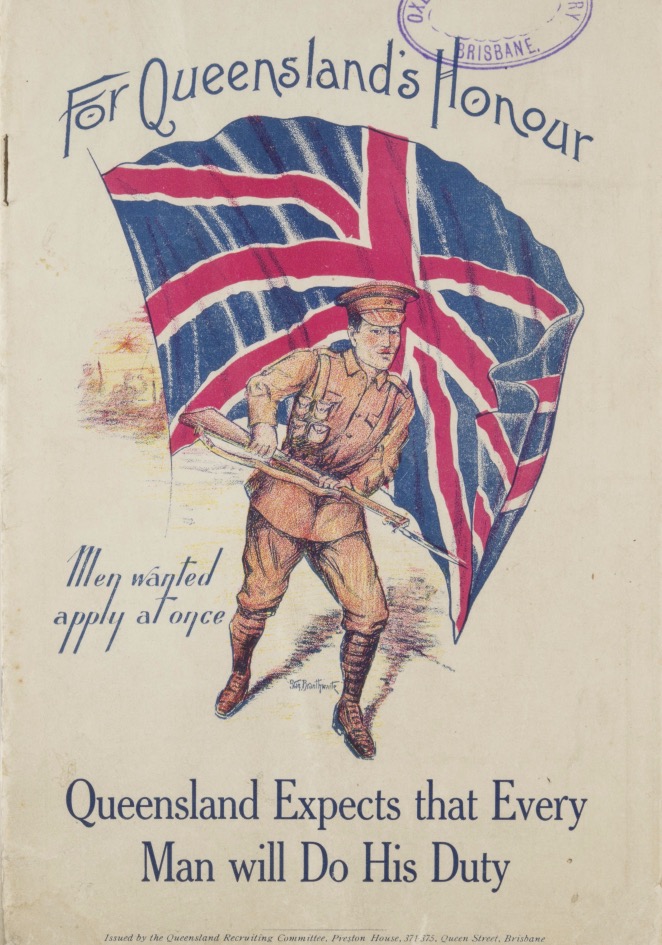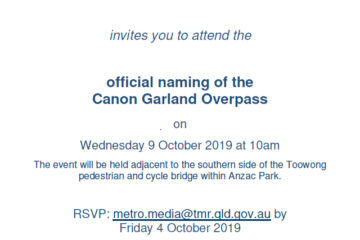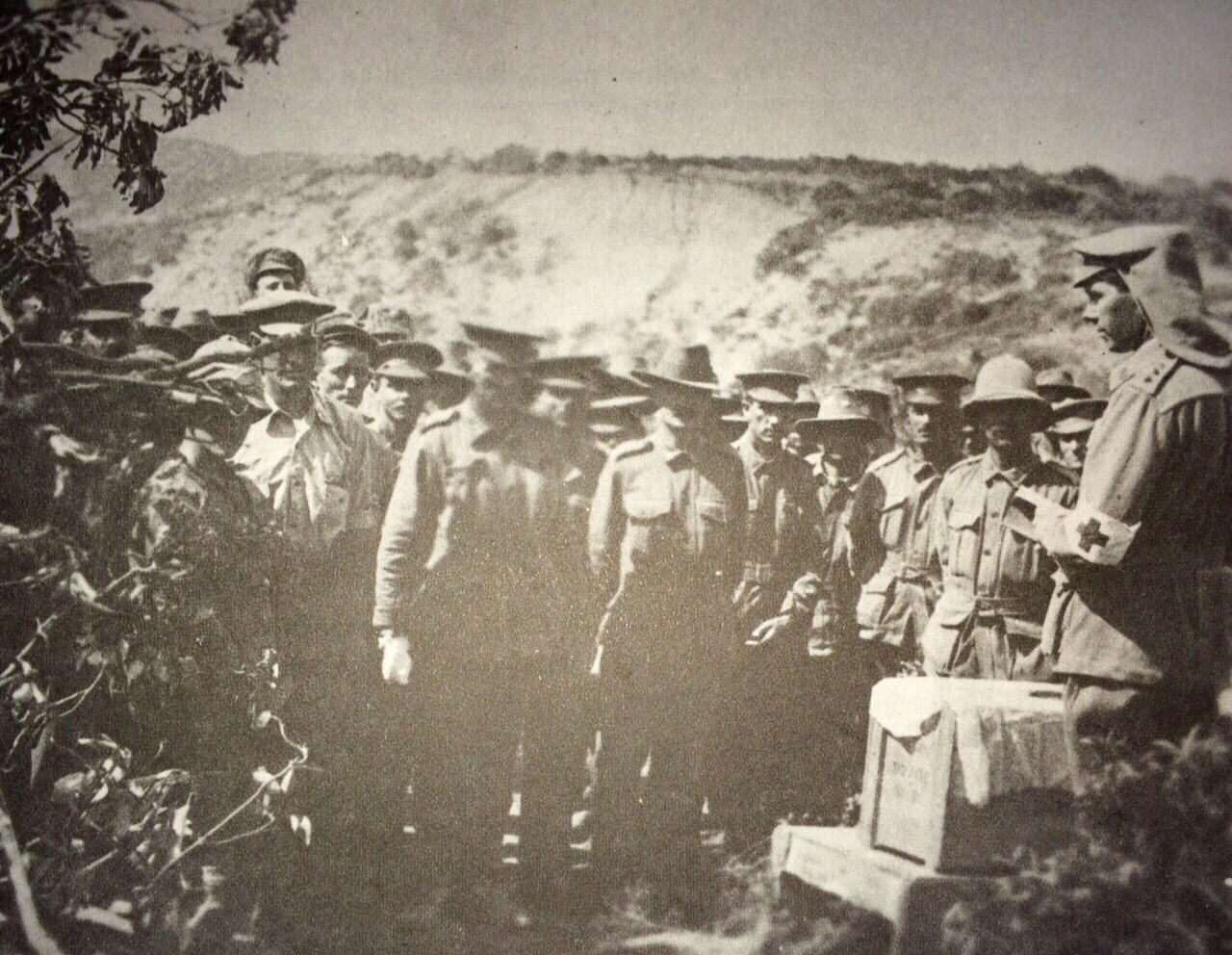Recruiting campaign progress

ABOVE: A Queensland Recruiting Committee poster from early in World War I. This image is from the State Library of Queensland Collection’s Hackett’s Scrapbooks (OM92-46).
RECRUITING CAMPAIGN.
WORK IN QUEENSLAND.
A MEETING of the Queensland Recruiting Executive was held in the City Council Chambers yesterday [ 8 October 1915 ].
Hon. A.J. Thynne [ Andrew Joseph Thynne ] presided, and there were also present: Mr. P.B. Macgregor (hon. secretary) [ Peter Balderston McGregor ], Lieutenant-Colonel Canon Garland (hon. organising secretary) [ David John Garland ], Messrs. R.C. Ramsay [ Robert (“Bob”) Christian Ramsay ] and J.U. McNaught [ John Ure McNaught ], Alderman G. Down [ George Down ], and Lieutenant-Colonels Moore [ Richard Albert Moore ] and Hopkins [ George Herbert Hopkins ].
Mr. McNaught was elected a member of the executive in place of Captain C.S. Fraser, who has been called up for service.
Canon Garland reported on an interview he had had with Senator Pearce (Minister for Defence) [ George Foster Pearce ], which was highly satisfactory.
The interview left no room for doubt that the Minister desired that recruiting in Queensland should be pushed forward.
The very fact, that Australia was not getting her full reinforcements made this all the more necessary.
The reinforcements called for by the Federal Government were 16,000 men per month to take the places of the killed, wounded, and sick. The number was short.
Queensland, however, had been doing very well, and had furnished more than the quota laid down by the Federal War Committee.
This, however, was no reason for self-satisfaction or for going slow.
The fact that there was a shortage in other parts of Australia should inspire the Queen of States to give a lead to the Commonwealth.
As a result of the interview with the Minister the executive was now aiming at obtaining 10,000 recruits as quickly as possible.
The Minister had given his assurance that there would be adequate equipment for 10,000 men a month if they came forward.
Both the Prime Minister [ William Morris (“Billy”) Hughes ] and the Minister for Defence recently made public statements that every man available was wanted, and there was no doubt left in his (Canon Garland’s) mind that these Ministers meant what they said.
He made this remark because it had been reported that Members of Parliament had stated that recruiting might he abated.
He wished to correct this — never was there a greater necessity for recruiting being kept up than at present.
The executive agreed upon instituting a city campaign, to be started in Brisbane at an early date. The details were referred to a sub-committee for arrangement.
A recruiting film was approaching completion, and it was intended that this film (which gave scenes of camp life) should be screened throughout Queensland, so that the persons in remote parts of the country would be enabled to see the conditions under which the recruits lived in the camps.
The question of a recruits’ march from some of the country towns through Brisbane was also considered, and the matter was referred to a sub-committee for report.
Referring yesterday to his impressions of the New South Wales’ camps, gained during his recent visit, Lieutenant-Colonel Canon Garland said his position precluded his making comparisons, but his daily contact for many hours with camp life in Queensland left no doubt in his mind that everything possible was done to provide for the men’s comfort and health.
He was particularly impressed with the way in which the authorities had dealt with meningitis, which (according to telegrams in the Press) was serious in other places, but had been almost stamped out in the Queensland camps.
Mixing constantly with the men, many of whom were his personal friends long before they enlisted, he got only one opinion from them as to the good treatment and care.
Of course there were persons who considered that men ought to be treated as if in a first-class hotel, or living under home conditions with their mothers, and there would be no satisfying such people.
But the plain proof of the excellence of the conditions was to be found in the way recruiting continued, for if things were unsatisfactory the word would he passed round by those in camp, and intending recruits would be discouraged.
It was quite possible that this was the cause of the falling off elsewhere.
Speaking of his own experience, he said he could testify that anything which seemed to need improvement was at once dealt with by the authorities if their attention was drawn to it in a proper manner.
— from page 6 of “The Brisbane Courier” of 9 October 1915.


